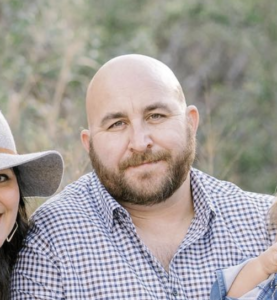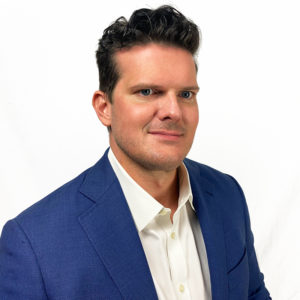Every leader has faced difficulties and hurdles on their path to the top, but it is how they overcome these issues that distinguishes exceptional leaders from the others. In this interview series, we spoke with 20 USA entrepreneurs, business owners, and leaders to learn how some of the country’s most successful entrepreneurs and leaders faced adversity and triumphed.
We’ll also go through some strategies you can utilize to overcome any obstacles that come your way.
INTERVIEW HOST
The host of this interview was Jed Morley. Jed Morley is the CEO of a leading payment processing service provider called PlatPay.

Table of Contents
The question we asked:

Kristina Alexandra Kovalyuk
Being taken seriously. As a woman you automatically get a discount and your ideas are taken less seriously. Women typically have to work twice as hard as men to bring their product/service to life.
Another difficulty has been getting the right support resources and systems in place. When you are an entrepreneur you have to do everything yourself – it works great for areas of strength and much tougher for areas of weakness.
Having to balance both operations, back office, and business development. Balancing both home, personal and work life. Hiring staff. Dealing with COVID uprooting and changing not only my business but HOW business is done.

Kathleen Ahmmed
Speaking from personal experience, one of the biggest challenges that I had to deal with at the start of my entrepreneurial journey was making the right hiring decisions. This is because, as any new entrepreneur can attest, when you are first launching a business it can often feel like you’re in a race with yourself to get things done and solve problems quickly.
And while it is prudent to speed things up at the start, in order to avoid being left behind and lose potential market share, when it comes to recruitment, I learned the hard way that this is a process that demands a lot of time and patience, because one wrong hire can not only damage the reputation of your company but it can also have a negative impact on employee morale, productivity, and collaboration, which ultimately leads to a toxic work culture.
This was a mistake that led to the downfall of my first startup a few years back, but I learned from my mistakes and started over, which is why I would often advise young startup leaders to always take the time to do their due diligence and hire for intelligence, skill, and cultural fit first, because while it is easy to recruit people who are “good enough”, there’s a risk of them being the biggest hindrance to business progress.

David Reischer
When hurricane Sandy flooded Battery Park in NYC in 2012 we lost all our data for our business because our servers were completely destroyed.
I learned the painful lesson that the false peace of mind that comes from running regular backups is worthless without testing that the backups are actually working as expected.
The major tip for overcoming future setbacks and failure from that point forward for me has been to make sure that a similar mistake or a foreseeable accident cannot ever be repeated. We now have redundancy built into all our data collection efforts and we also periodically test our systems.
It is critical for a CEO to learn the lessons from past adversity and be sure to learn the proper lesson so as to avoid a repeat setback or failure. A CEO must learn to forgive oneself for past setbacks and set up policies and procedures that plan for future events with the benefit of hindsight.

Luisa Zhou
The biggest difficulty I faced when I first started my business was that I didn’t have any role models in my life.
No one in my family is an entrepreneur and at the time, I didn’t have an entrepreneurial network. It was difficult to go against what everyone else thought was “smart” or “normal” (climbing the normal career ladder).
And it made me doubt myself. I’d think, “Am I throwing it all away?”, “What if I’m making a mistake?” At the same time, proving everyone wrong helped me achieve fast growth early on.
In fact, it ultimately made me a more resilient entrepreneur and I learned how to not limit myself based on other people’s opinions.

Kyle Kroeger
I’m an entrepreneur and finance expert at theimpactinvestor.com. After working 10+ years in sustainable private equity and impact investing, I realized that becoming a successful entrepreneur is quite a challenging feat.
Having done some research and on the basis of my personal experience, I have attempted to summarize the ingredients required to become an impactful craftsman in your trade.
Meaning
As you have probably experienced, there exist millions of accords of successful entrepreneurs wherein they have elaborated on their personal and professional journeys. Amongst the best of them, a common denominator that research coupled with my personal observations has shown is that they pursue what is meaningful and impactful.
Entrepreneurs, most successful ones, as much as it may seem that way, rarely take up decade long projects only for the sake of its potential monetary rewards without ensuring it holds within itself a personal calling for them, and achieving which would result in not only a sense of meaningfulness but also make an impact with respect to the betterment of the society. As you read along, it will also become clearer as to why such projects are much more sustainable with respect to the long run.
Planning/Assessment of Feasibility
Secondly, it must be acknowledged that entrepreneurs who have that cutting edge to their business also go the extra mile with respect to planning their projects out. They do not hold back in budgeting in terms of availing consultancy and advisory facilities.
The feasibility of projects before undertaking them is comprehensively covered. This includes forecasting all expected fixed, variable, implicit, and explicit costs. To ensure practicality, lower bounds for projected sales returns are incorporated.
Mindset and Values
Lastly, what are arguably amongst the most important factors that go into running a business successfully, are the values and the mindset that one takes to it. Interviews with the best and most successful entrepreneurs have shown some common psychological thought processes.
Firstly, such individuals look at mistakes in a different way. Mistakes and failures do not prove to be deterrents from pursuing their goal. In fact, they are seen as learning experiences and lessons to incorporate appropriately going forward. This sense of persistence is channeled through consistency.
Successful businessmen and businesswomen do not start with a bang and end with a whimper as they say. Instead, in the beginning, they might start by giving their idea as little as an hour a day, whilst progressively increasing this time period as they go along.

Admir Salcinovic
The most difficult challenge we faced in building our business, PriceListo, is recruitment and employee retention. According to research in 2021, the unemployment rate reached an all-time low and this made it difficult for us to find top talents to fill important roles in our company.
The Great Resignation of 2022 has also brought about series of employment challenges that left several companies exposed and in critical state. Despite the fact that a lot of people are not working at the moment, securing the right candidate for roles remains a big issue. Hiring mistakes can be very expensive, as employee turnover costs can set the company back by more than $3,000.
To overcome this problem, we had to strategize on the best approach to achieve desired results. The first step was creating a goal that expresses what we want. Assessing the roles which a new recruit would play in our company, the experience and skills they need to fit what we want we’re considered.
Then we created a job description that fits and attracts candidates that we want. While executing each step, we ensured we had a clear vision so that our recruitment process would not be unproductive. Considering the employment and retention issues, we created a competitive salary structure and integrated employee benefits such as remote work, work flexibility, health insurance, mental health care programs, and so on. Over time, we were able to get the right results by hiring top talent and minimal employee turnover.

Paul Dillon
I retired as a consultant from the Chicago office of the McGladrey accounting firm in 2006. Upon my retirement from McGladrey, I reinvented myself by starting my own firm in Chicago, which is now devoted to helping veterans who want to start their own business. I am a former U.S. Army Reserve 1st Lieutenant, who fought in the Vietnam War. I was the creator of the concept for an incubator in Chicago for veterans who want to start their own businesses, called The Bunker, which has been recently rebranded as Bunker Labs.
In November of 2013, I moved my headquarters to Durham, NC , but maintain an office in Chicago, also. I worked with an organization, called Entredot, to start a support program for aspiring veteran entrepreneurs in North Carolina, called VetStart, which has recently been rebranded as Bunker RDU. I have been in the professional services business for most of my working life, but have never worked with veterans before this.
But, my business didn’t start out with the idea of helping veterans. I started out thinking that I was going to provide project management and business development services to companies in the service industry. But, that didn’t work out. I had to “pivot” several times, before I found a niche that worked.
My big break, and big pivot point, was when one my clients, Crain’s Chicago Business, our regional business publication in Chicago, asked me to do some research in 2011 on companies in Chicago that were hiring veterans. I spent a considerable amount of time on this assignment, much more than was necessary or what I got paid for, and learned what I could about businesses in Chicago, and around the nation, who were hiring veterans, and the support programs for veterans wanting to enter the workforce upon leaving their military service. All of this research led to a very successful section in the publication around Veterans Day in 2011, called “Veterans in the Workplace”.

Sam Cohen
I have gone through many challenging times in my career and have learned many lessons. One of the most challenging times was when I had to manage a team larger than I had ever handled before. My previous teams had been small and I had been able to control everything by myself.
However, this time there were a lot more moving parts and the stakes were much higher. I learned that at times you need to delegate in order to achieve your goals, but this also means you need to be able to trust your team. I also learned that some people are there for the long haul, and some give up when the going gets tough.

Ouriel Lemmel
When I first started out, I had an idea that I wasn’t sure was going to work, but I decided that if I was going to be an entrepreneur, I needed to take a chance on myself. The biggest hurdle is believing in your idea and knowing that you can make it work.
I knew that in order to succeed I would have to do my research if I wanted to be sure my idea would work. Here’s how it started, I was driving in New York City and it seemed impossible to avoid tickets. I decided to create a product that would address a major pain point for everyday drivers and help them save money. I did my research: First, the product was relevant and needed.
Second, I tested with my own tickets and realized there was a way to create a process to efficiently dispute them. Third, the economics, with the size of the market and our clear business model, we knew we had a shot at trying this. The biggest obstacle I faced was taking that first step with my innovative idea and deciding to go for it. Entrepreneurs need to believe in themselves if they want to succeed.

Mark Daoust
The biggest challenge I faced when I started out, was that there were no business models for me to follow. In 2002, I sold an affiliate business and a friend asked me to help him sell his own online business.
At the time there was no such thing as an online brokerage firm and nobody to ask how to even start such a business. So I made my own template and started my own brokerage. Even though it may have been risky to jump in without any guidance, I knew that my idea was solid and that my service was needed.
Today we have 14 advisors and are adding all the time. We are an entirely distributed company with advisors from the West Coast to Eastern Europe and everywhere in between.

Marilyn Gaskell
The journey to the entrepreneurship level is not easy. You may be standing alone at the end of the day. There are many challenges I faced as well.
1. Building team
The first challenge to my successful entrepreneur journey was team building. Recruiting the right persons for the tasks was a challenge. The skilled person expected high wages, which was not affordable initially, and freshers were ready to come for fewer wages but with no experience.
2. Managing family with work
Not having enough family time was indeed a struggle. I had to cut off all the essential dinners and family gatherings to focus on my work.
3. Difficulty in accessing capital growth
Being new to the entrepreneur world, it was an obstacle to reach the contacts and get funds from capital growth for recognition.
4. Getting crushed by the rivals
Rivals gave me a tough time rising on my feet. And as I was fresh in the market, the consequences were in terms of less number of loyal customers.
5. Mentally unstable
In the journey to entrepreneurship, every step had much mental stress waiting for me. At times I even had thoughts of quitting this voyage and getting back to a 9-5 job. It was devastating with loneliness and work pressure.

Bryan Philips
Hey there Jed, As an executive and founding member of In Motion Marketing, I can definitely speak on the difficulties that come with making your dream business a reality. The biggest difficulty I faced on my journey to becoming an entrepreneur is my own self doubt and fears that I wouldn’t be strong enough to reach my goal.
The biggest challenge with climbing the ladder of success is that you can never be sure of where that ladder will lead. I know that, in order to be successful, you have to get up every single day to work towards your dream and this is definitely easier said than done. While the end goal for any entrepreneur is to own a successful company that they can be proud of, the steps to getting there can be stressful and ignite you with self doubt.
However, it is important to keep your eye on the prize and take the process day by day. By setting small, achievable goals, I was able to stay calm and professionally handle all the curve balls thrown at me. The journey to success can be long and stressful but understanding the specifics of your goals can make the process much more fulfilling. Hopefully this insight was helpful.

Sean Chaudhary
The major difficulty I faced when becoming a CEO was having to get comfortable saying no. Being a leader has its challenges, and you simply always want to make people happy. However, you have to make some tough choices and be able to say no more often in order for your company to be successful.
Saying no is not always a negative experience, and you should always continue to be appreciative to those who help you. However you need to be able to set boundaries and recognize that you cannot do it all. This was something that I struggled with at the beginning, but have become more comfortable now in knowing what I want and how to get there, which sometimes means saying no.

Richard Lubicky
6 years back, when I was in the planning stage to start my business, the biggest challenge that I faced (being a green youth) was that no one took me seriously, and precisely and targeted me with unsolicited bits of advice cum criticism. But, thanks to my strong nerves, with persistence to achieve my goals, I ignored everything but the good advice.
And, let me give you a hint; it is necessary to protect yourself, particularly in the beginning, so as not to let these criticisms and attacks on your proposed venture prevent you from positioning yourself in the market with pride. To overcome this challenge, first, you must know how to filter the advice people give you. Don’t absorb all the advice promptly.
Consider whether it fits your experience and life. Second, you must learn the art to silence the voices (without hurting) of people who have had bad experiences in the market and who therefore try to daunt you. Advice that focuses on discouraging you and averting you from growing should be overlooked.

Aaron Masterson
One of the most difficult challenges I struggled with when building my business is employee termination. As a business owner that built a business with family, I have a great deal of empathy towards my employees. As a result, I find it hard to lay off staff even when the productivity and efficiency of operations of the company is affected.
There is no business leader that does not experience some sort of worry when it comes to firing a team member, especially in cases where the team members have become a tight-knit group. However, as a company continues on its path to growth, employees are required to keep up.
As a leader, you are required to make hard decisions that will help the company continue on its growth trajectory, one of which is to continuously upgrade talent. Nobody wants to work in an organization that is stagnant and with no opportunities to move to the next level. Keeping employees who drag the team down will eventually lead to stunted growth.
As a result, I had to learn ways to approach employee elimination with respect and grace. Anyone would agree that laying off an employee is less than ideal, so it is important to remain transparent and honest on reasons for termination. Remaining professional in these situations have helped to build my character as a business leader.

Lauren Gast
Truck drivers are key members of one of America’s Essential Industries, so pivoting in the face of COVID-19 was extremely important. Pre-pandemic, instructors and students in TDI’s training program were in near-constant close contact.
During the pandemic, COVID numbers began to rise alongside an increase in supply chain shortages. The country needed truckers to transport cargo and mitigate these supply chain backups, so we knew that completely stopping classes was not viable.
In order to ensure the safety of our students and staff during CDL training, we developed a comprehensive pandemic plan. To follow CDC guidelines, we instructed our trainees to postpone their training if they felt under the weather or had recently been exposed to COVID. We also drew up comprehensive sanitation and social distancing guidelines, mandating that our trainees wash their hands often and keep their masks on during in-cab training.

Christopher Smith
I faced many obstacles to becoming a Senior SEO analyst. To start with, I was a fresher in the field who had no prior experience. Advancement from position to position is always difficult. In my organization advancement has its own importance. There were two main obstacles in my way of becoming a Senior SEO analyst.
The first was the lack of formal training I received. Due to this, I lacked the expertise most of my colleagues had. I had to work harder to keep up with them. The second obstacle was the lack of relevant experience. Despite my experience with SEO, most of my colleagues had more experience with SEO techniques. I also lacked SEO experience outside of a large corporation.
In spite of these obstacles, I was able to leap past them. I reached my goals by promoting myself. I offered to help my colleagues in need of extra help. I became an advocate for SEO within the company. I used my time and knowledge to become a leader in the field. My company gave me the opportunity to expand my expertise in SEO. I did this by attending conferences and learning from other professionals.

Brad Hall
These days, consumers are inundated with great products and services. In becoming an entrepreneur, you’ve got to be more innovative than all the rest when building your product or service.
Thinking outside the box to create something that takes your industry to the next level is both extremely difficult and vitally important. Not only innovation in creation, but innovation in marketing is also imperative to elevate your business above the competition.
Confidence, creativity and conscientiousness are qualities required to set your business on the right trajectory.

Phil Shawe
In business and in life growth is hardly ever achieved without struggle. Reflecting on past business battles won certainly yields takeaway lessons I wish I had when I first started. It’s hard to imagine now that TransPerfect started as a two-person company out of an NYU dorm room in 1992 with a $600 fax machine and $40-per-month rented computer.
From securing our first contract – translating a three-page document from English to Slovak – to headquartering on New York’s Park Avenue and expanding internationally¬, our success continues to be defined by challenges overcome as a company with a vision is to be the world’s premier provider of global language and business solutions.
I believe every leader— every person— reaches a point in the face of adversity where they consider giving up, but finding the motivation, the drive to keep going is what separates successful leaders from everyone else. For me, whenever I find myself facing a particularly challenging situation, I think back to what my late father used to tell me, “If you keep going, the other guy eventually quits.” I never want to be the person who quits, so I decided early on to become the person who keeps going.
We have faced challenges, indeed, but this pandemic has been a unique issue for us, and I recognize it has deeply impacted many companies. When the pandemic first hit, our leadership stepped back and made four priorities to guide our team through trying times. Our first priority was staff safety, both at home and in the office.
The second priority we set was to continue servicing our customers, especially because global communication became more important throughout the crisis. Our third priority was financial stability for the corporation, ensuring that we could be a stable partner and operate profitably. After taking care of these first three priorities, we were able to focus on the fourth which was adhering to our guiding principles.
It was my role to lead by example and set these priorities to ensure that our team had the proper resources and motivation to follow through on what needed to be done to complete each of our goals. One of the most important components of strong leadership is to instill the guiding principles, ideals, work ethic, and client-service orientation in your staff so that your mission is upheld across the company.
By doing this your company can not only endure, but thrive, even in the face of something seemingly catastrophic. Based on my experience in leading TransPerfect’s growth into an almost one billion-dollar company it is today, here are the five most important guidelines a business leader should follow in order to lead effectively when facing adversity:
1. Never give up
There were so many times I could have walked away from TransPerfect, both after failures and after successes, but I stuck with it and, together without our incredible team, grew it into the international language services hub that it is today.
During uncertain times, I look back and remember all the times we persevered, knowing that while I haven’t necessarily navigated the specific problem we may be facing at the moment, we have come out the other side from countless others. So, while it sounds cliché, never give up and you’ll go far.
2. Set goals you can reach and goals you want to reach
During trying times, setting priorities and realistic expectations to keep your team in line and company stable is a must, but I think it’s important to go even further. Even throughout the pandemic, I expected TransPerfect to continue with our civic duties, which pushed us a little harder to ensure we had the needed resources to do so.
While we could have simply kept going as we were, hitting the easy-to-reach benchmarks we set early on, we decided to go one step further and reach that next level of not only surviving, and not only thriving, but helping others thrive as well.
We volunteered resources and services to help municipalities and locales translate important Covid guidelines, vaccine information and public emergency protocols. With setting higher goals also comes long-term thinking which provides the needed push to get through uncertain times.
3. Communicate Effectively
Communication is the center of a trusting business relationship. When you’re direct with your teams and clients, solutions come easier, and problems become smaller. Especially during uncertain times, you must be a source of certainty for your partners, and open and direct communication provides the perfect forum to do so.
4. Motivate yourself and your team
If you as a leader can’t show up giving 100% during tough times, you can’t expect your teams to do so either. Fostering a sense of community where you lead by example and actively prove that you’re all in this uncertainty together will go a long way in ensuring short-term survival and long-term success.
5. Don’t be afraid of change
Over the course of my life with TransPerfect, I’ve seen the company go from a two-person team in dormitory to a leading international language service provider, and between when I started and now, what was expected of me as a leader and TransPerfect as a company has changed numerous times. Rather than shying away from new roles or new technologies, we leaned into it and continued to ask, “what comes next?” During uncertain times, you never know what will be asked of you, but having an open mind to change will always give you the upper hand.
I cannot stress enough the importance of internal self-development for any aspiring entrepreneur or anyone in a business leadership position. I’ve learned in my career that self-development and internal work never stops – one can always make improvements and adapt to an ever-changing environment.
Keep these guidelines in mind as you navigate your own leadership journey, but also feel free to forge your own guiding principles as you see fit. With the proper tools you can weather any storm and overcome any challenges the world throws at you in both business and in life.

Craig Anderson
One way that efficient leaders overcome difficulties is by staying focused on their goals. They do not allow themselves to be distracted by challenges or setbacks. Instead, they stay motivated and continue working towards their objectives. Furthermore, these leaders are also flexible and adaptable. When things do not go as planned, they are able to adjust their strategy and continue moving forward.
Efficient leaders also have a strong sense of self-awareness. They know their strengths and weaknesses, and they use this knowledge to their advantage. They also constantly work to improve on both. Leaders who are aware of their own shortcomings can more effectively manage their teams and lead them to success. Additionally, self-awareness allows leaders to be more authentic and transparent with their team members, creating a more open and trusting relationship.
Lastly, a good way leaders overcome difficulties is by seeking advice from others. Asking for help allows them to tap into the resources, expertise, and wisdom of those around them, thus increasing their chances of success. In addition, seeking input from others can also create a sense of collaboration and team spirit, which can be beneficial for the overall morale and productivity of the organization.


